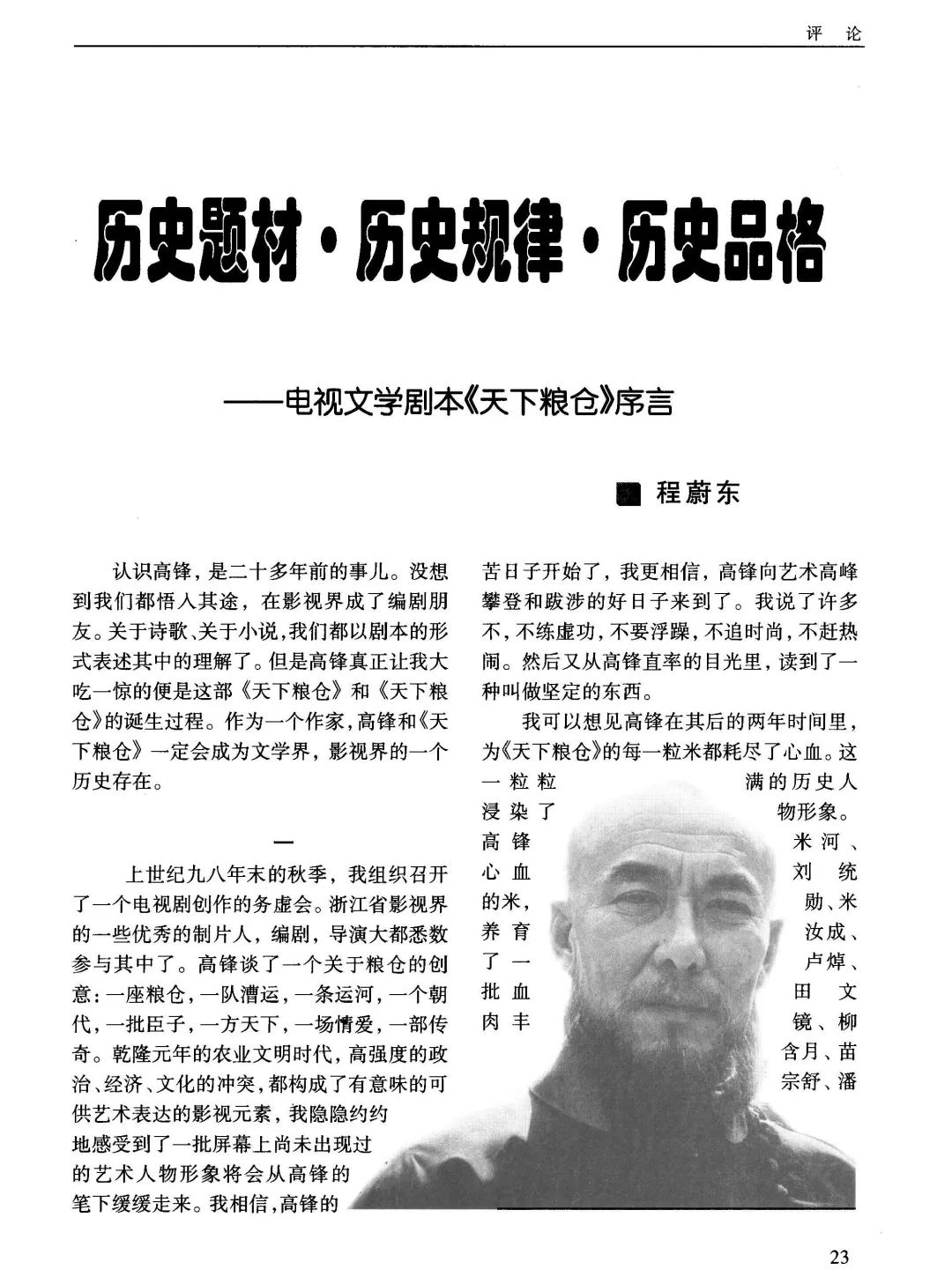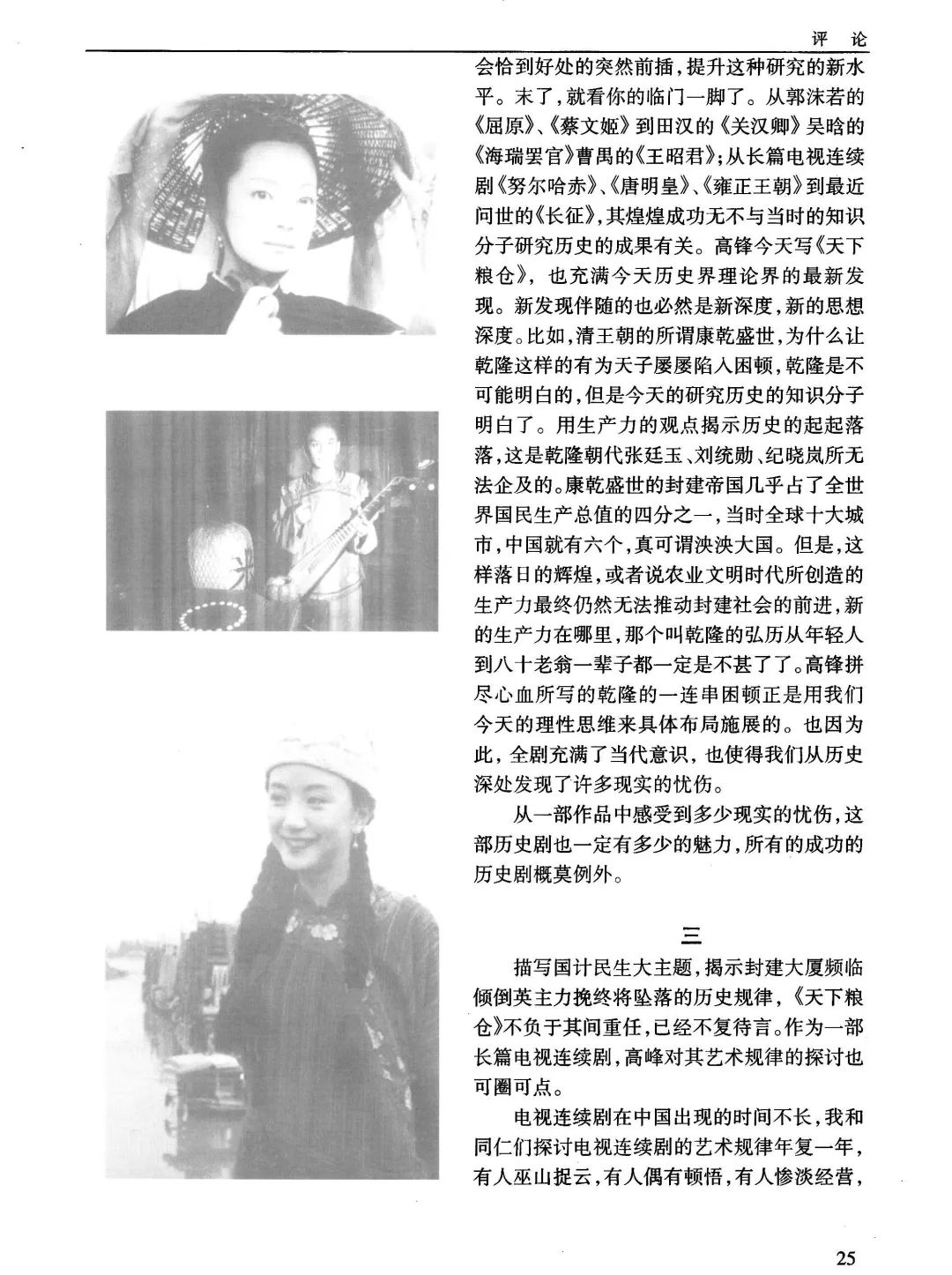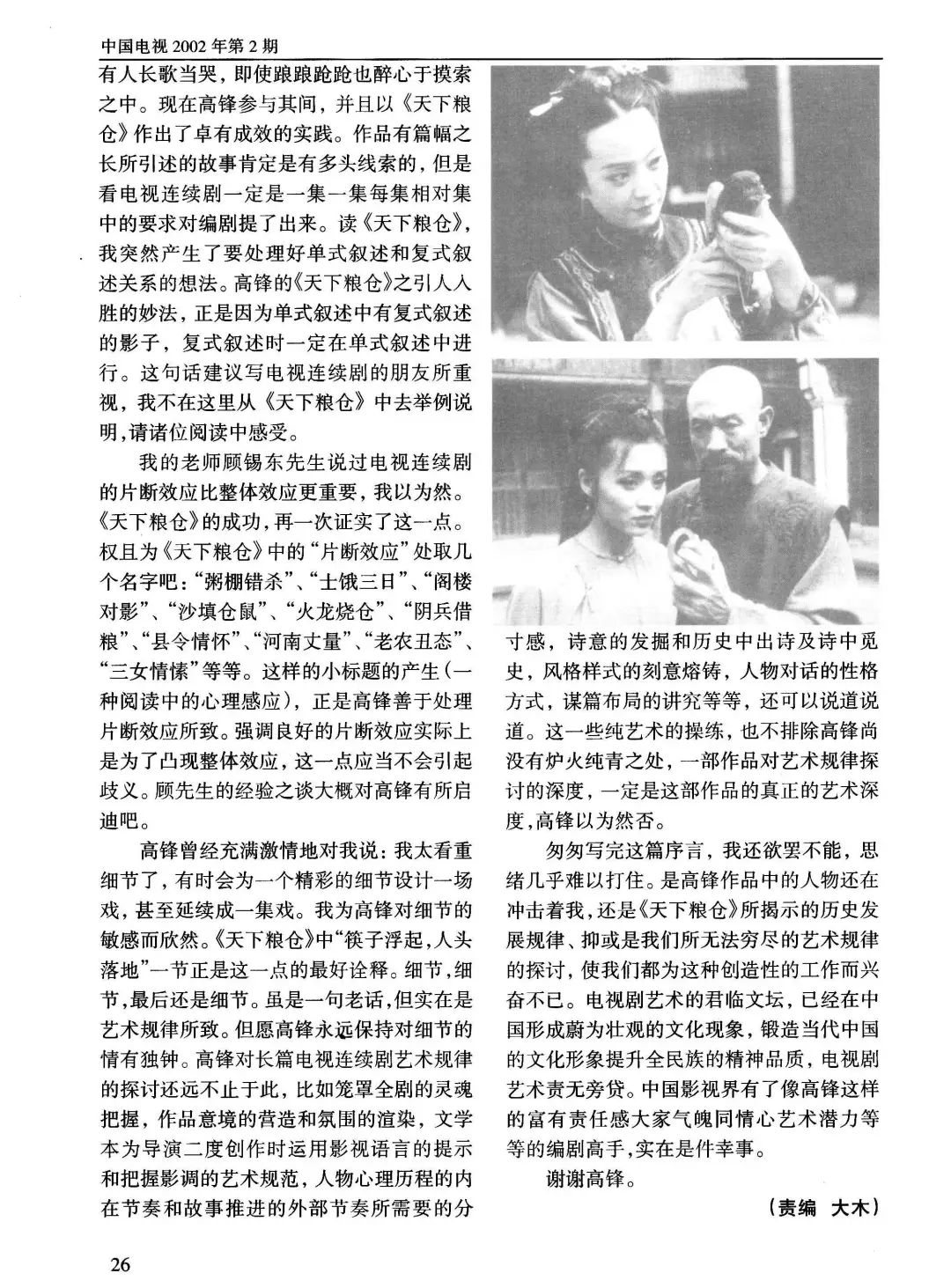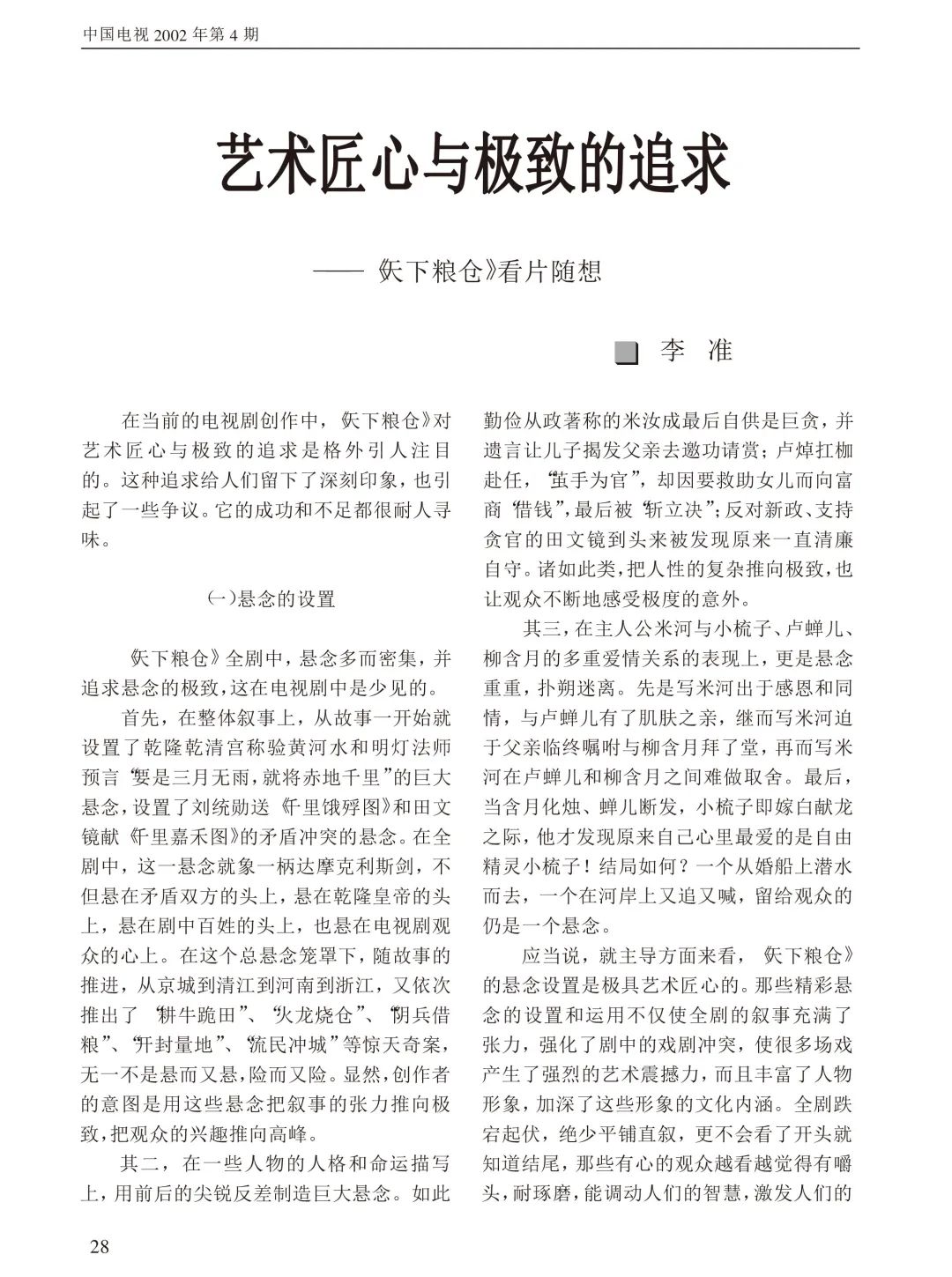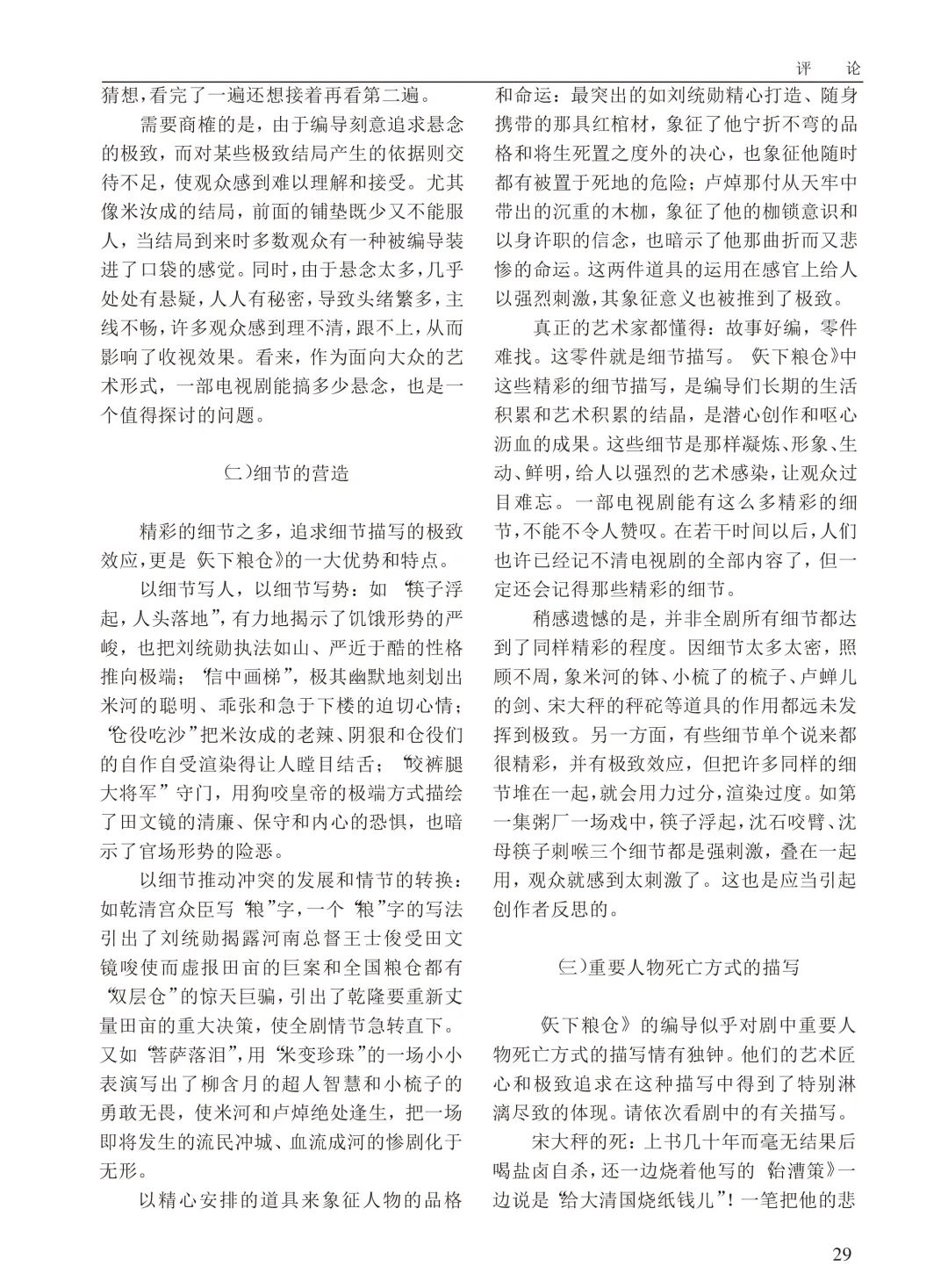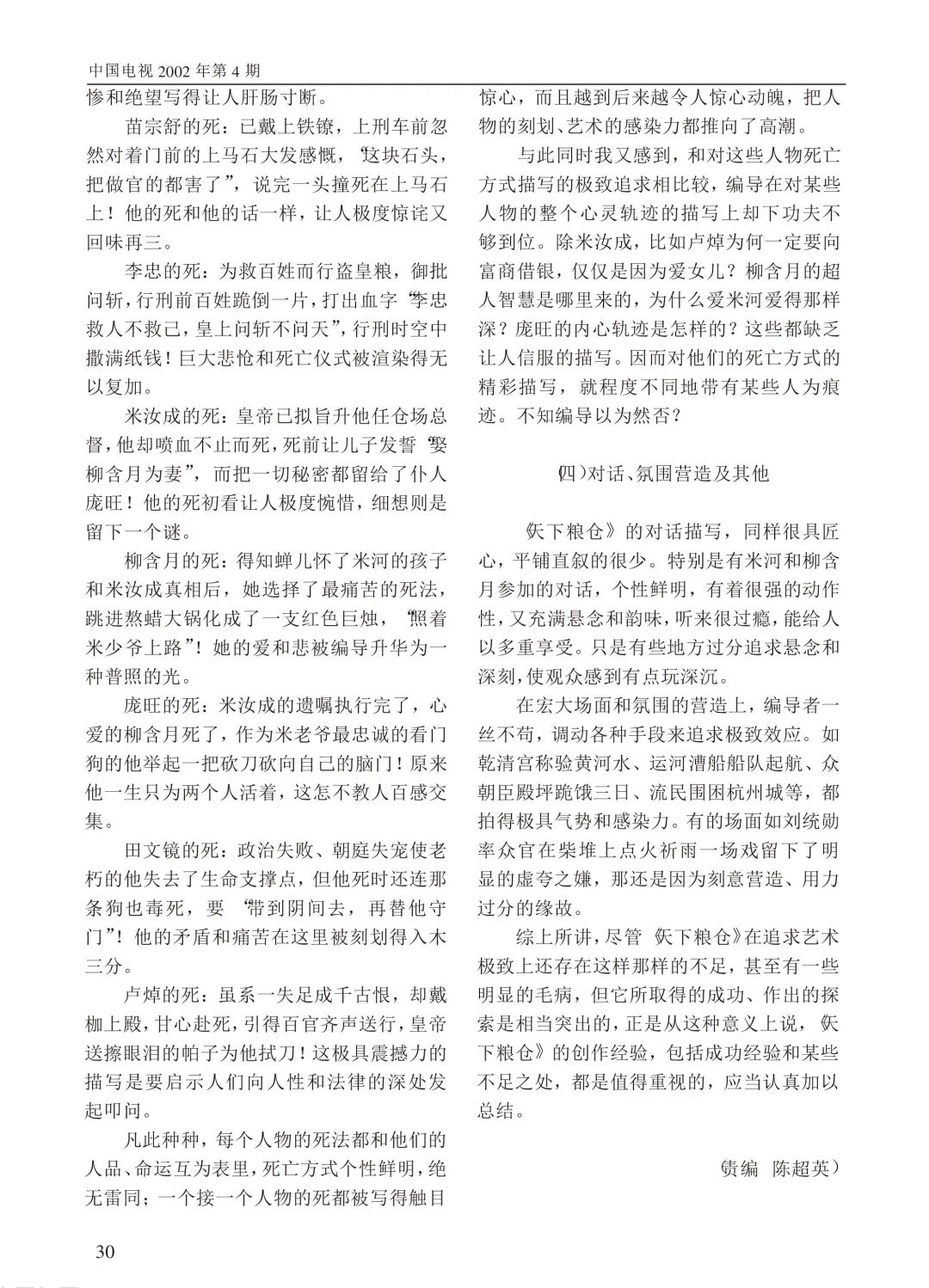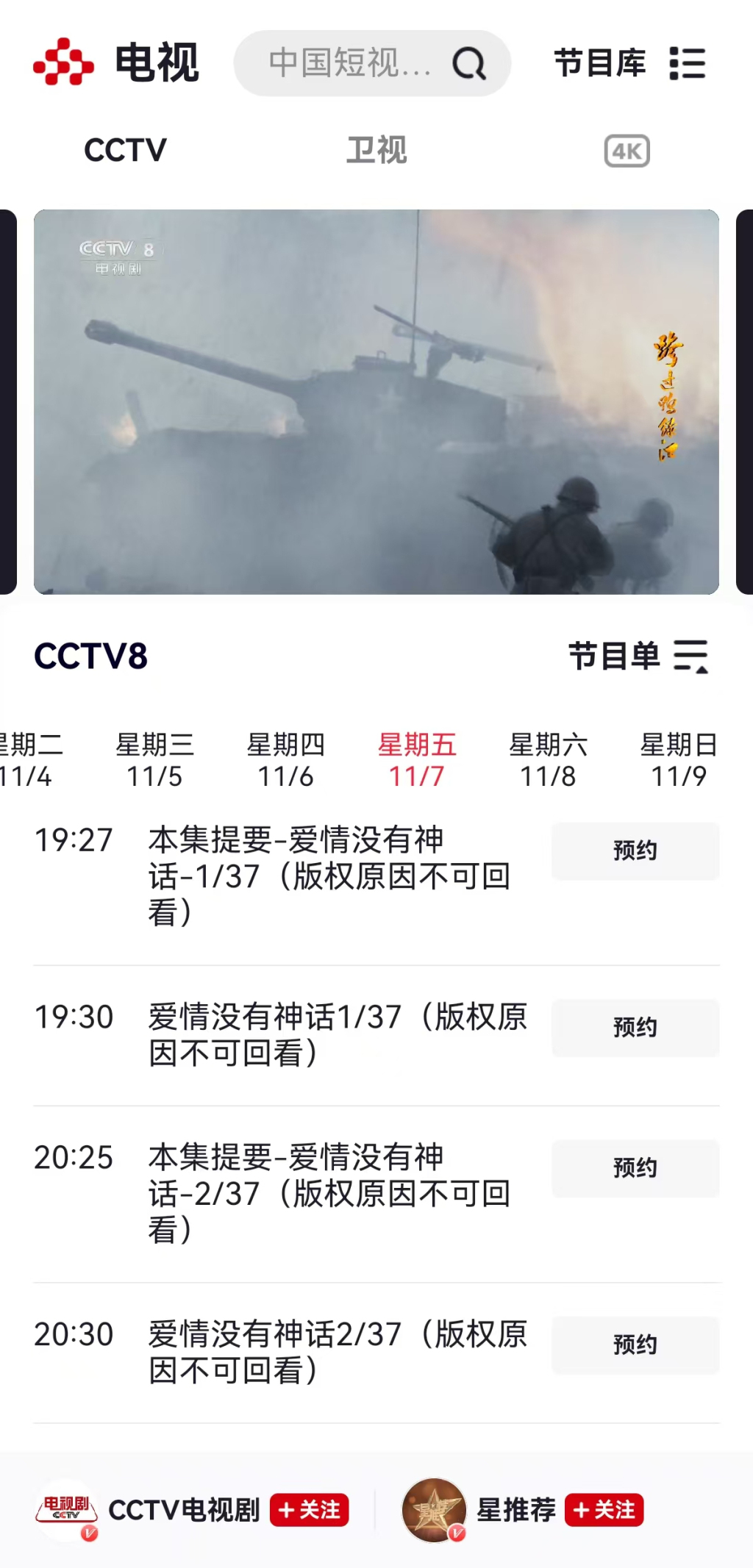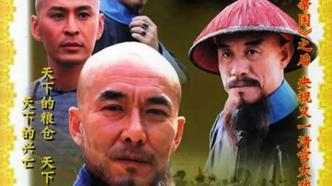
The historical TV series "The Granary of the World" directed by the famous director Wu Ziniu and first broadcast in 2001 will be broadcast on the "Revisit the Classics" channel from August 5. This work, which writes history with legendary techniques and legends with a historical perspective, combines rich history and extreme suspense. It once won the CCTV TV series' annual ratings crown and won the third place in the 22nd Chinese TV series "Feitian Award" for long-form TV series. Award and Outstanding Art Award.
The famous literary critic Li Zhun and one of the producers of the play and the famous screenwriter Cheng Weidong have published articles in "China TV" magazine, giving positive comments on the play's historical character and ultimate pursuit of art, and also on the play. Reflect on the regrets. Now please follow the perspective of famous experts and explore the unique details in "The Granary of the World" that make people read it again and again.
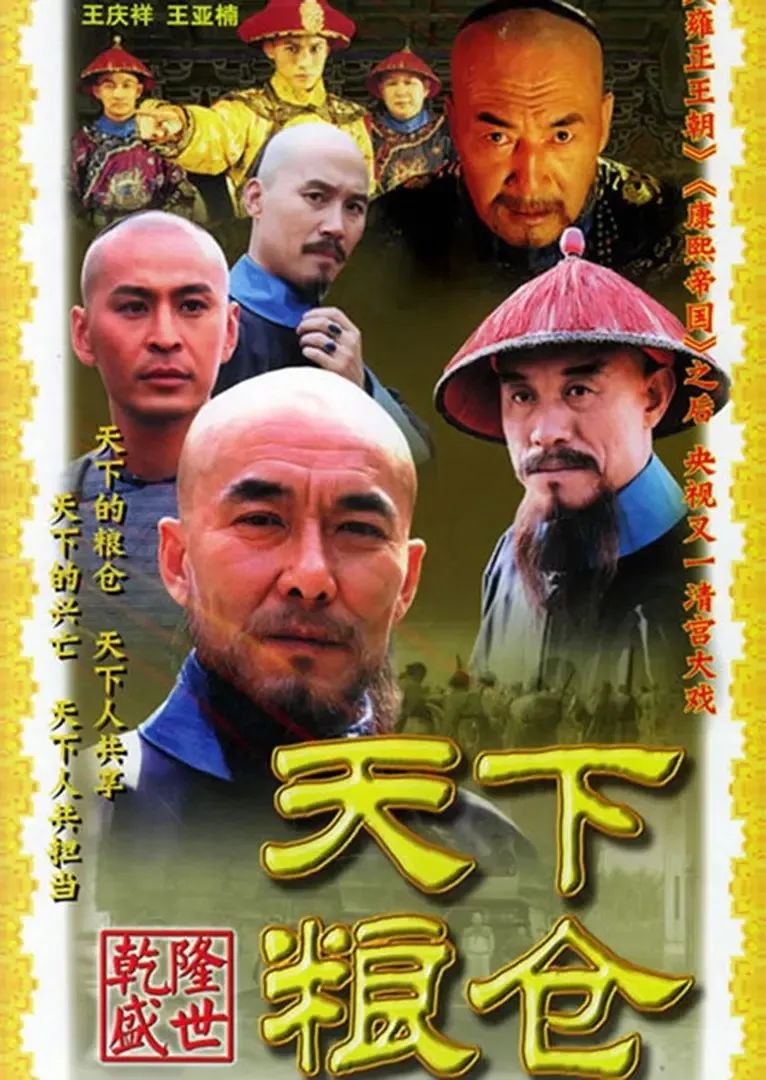
【Creator says】
Historical themes·Historical laws·Historical character
——Preface to the script of "The Granary of the World"
● Cheng Weidong, the famous screenwriter and producer of the play
Flesh-and-flesh historical figures
In the fall of late 1998, I organized a TV series creation retreat. (The screenwriter of the play) talked about an idea about a granary: a granary, a fleet of water transports, a canal, a dynasty, a group of courtiers, a world, a love, and a legend. In the era of agricultural civilization in the first year of Qianlong's reign, high-intensity political, economic, and cultural conflicts all formed meaningful film and television elements for artistic expression. I vaguely felt a group of artistic figures that had not yet appeared on the screen. The image will slowly emerge from Gao Feng's writing. I believe that Gao Feng's hard days have begun, and I even more believe that Gao Feng's good days of climbing and trekking to the peak of art have arrived.
In the next two years, Gao Feng worked hard for every grain of rice in "The Granary of the World". This grain of rice has nurtured a group of flesh-and-blood historical figures: Mi He was so conflicted in the highly closed social framework created by agricultural civilization that he was considered to have a perverse personality; Liu Tongxun hated evil and regarded the black gauze hat as something external; the former; Tian Wenjing, an old minister of the imperial court, made great achievements, but he died in the new emperor's new policy by sticking to the rules, which makes people love and hate him... Many characters with distinctive personalities, rich connotations, complex and unique characters will provide us with excitement and excitement for a long time. Angry, shocked, even sighing with admiration.
Discover the sorrow of reality from the depths of history
Respecting the laws of historical development is probably a basic criterion for historical dramas. The state of human affairs and the many helplessness of the rulers in the first year of Qianlong's reign revealed in "The Granary of the World" were precisely dictated by the laws of that era. This dictated artistic control gained historical depth, and the artist also gained a high degree of freedom. Before Gao Feng started writing "The Granary of the World", he showed me a large stack of historical materials that was extremely thick, including folk songs and ballads circulated among the people. Thinking about it carefully, Gao Feng was able to accurately grasp the balance between historical reality and artistic fiction. , writing history with legendary techniques and writing legends with a historical perspective are precisely based on a clear understanding of the laws of historical development.
Respecting the new discoveries of contemporary intellectuals in studying history is probably the key to new success in historical dramas. "The Granary of the World" is also full of the latest discoveries and new ideological depths in today's historical and theoretical circles. For example, it was impossible for Qianlong to understand why Qianlong was repeatedly in trouble during the so-called Kangxi and Qianlong dynasties of the Qing Dynasty, but today's intellectuals who study history understand it. Qianlong's series of difficulties were specifically laid out using our today's rational thinking. Therefore, the whole play is full of contemporary consciousness, and it also allows us to discover a lot of real sadness from the depths of history.
The depth of exploring the laws of art is the true depth of art
Describing the major theme of the national economy and the people's livelihood, and revealing the historical law that the feudal edifice will eventually fall, "The Granary of the World" lives up to its heavy responsibility. As a long-running TV series, Gao Feng’s discussion of its artistic rules is also remarkable.
Gao Feng once said to me passionately: I pay too much attention to details. Sometimes I will design a scene for a wonderful detail, and even extend it into an episode. The section "Chopsticks float, heads fall to the ground" in "The Granary of the World" is the best explanation of this point. Details, details, and finally details. Although it is an old saying, it is actually caused by the laws of art.
Gao Feng's discussion of the artistic rules of long-form TV series goes far beyond this, such as grasping the soul of the whole drama, creating the artistic conception of the work and rendering the atmosphere. Literary texts provide the director with tips for using film and television language and the artistic norms for grasping the tone of the film, characters, The sense of proportion required for the internal rhythm of the psychological process and the external rhythm of the story advancement, the exploration of poetry and the search for history in the poem, the deliberate casting of style, the character way of character dialogue, etc. The depth of a work's exploration of the laws of art must be the true artistic depth of the work.
The art of TV drama has formed a spectacular cultural phenomenon in China, forging the cultural image of contemporary China and improving the spiritual quality of the entire nation. The art of TV drama has an unshirkable responsibility.
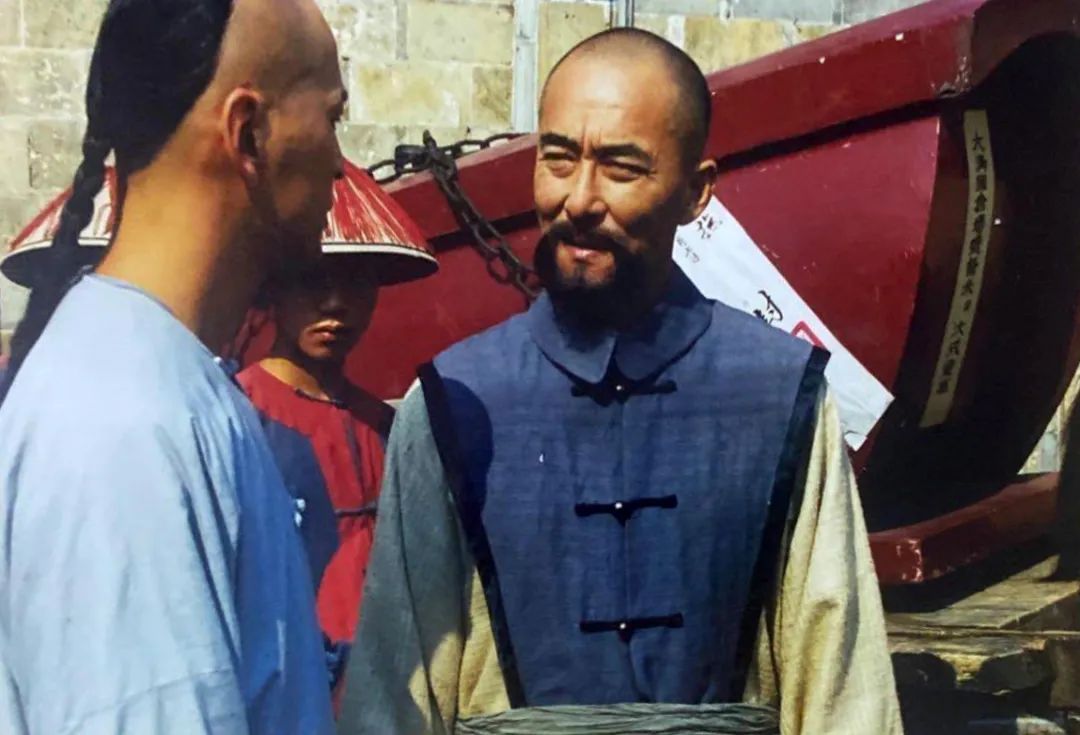
[Critics Talk]
Artistic ingenuity and ultimate pursuit
● Li Jun, a famous literary critic
Extremely ingenious suspense setting
In the whole drama of "The Granary of the World", there are many and dense suspenses, and the pursuit of suspense to the extreme is rare in TV dramas.
First of all, in terms of the overall narrative, from the beginning of the story, the huge suspense of the Palace of Qianqing's inspection of the Yellow River water and the prediction of Master Mingdeng that "if there is no rain in March, the land will be thousands of miles bare" was set up, and it was set up that Liu Tongxun sent the "Thousands of Miles of Hungry Picture" to Wada. The suspense of conflicts in Wen Jingxian's "A Thousand Miles of Golden Harvest". As the story progresses, shocking and bizarre cases such as "cows kneeling in the fields", "fire dragons burning barns" and "sinisters borrowing grain" are successively introduced. These suspense cases are used to push the tension of the narrative to the extreme and push the audience's interest to the peak. .
Secondly, in the description of the character's personality and destiny, the sharp contrast between before and after is used to create huge suspense. Mi Rucheng, who was known for his diligence and frugality in politics, finally confessed that he was a huge corrupt person; Lu Zhuo took the shackles to take office and "became an official with cocooned hands", but "borrowed money" from a wealthy businessman to save his daughter; Tian Wenjing, who opposed the New Deal and supported corrupt officials, had always been honest and honest. Keep. Things like this push the complexity of human nature to the extreme and allow the audience to constantly experience extreme surprises.
Thirdly, the presentation of the multiple love relationships between the protagonist Mi He and Little Comb, Lu Chaner, and Liu Hanyue is even more confusing. Mi He first had a physical relationship with Lu Chan'er, and then he was forced to worship Liu Hanyue due to his father's dying instructions. Finally, he discovered that his favorite was the free elf comb!
It should be said that the suspense setting of "The Granary of the World" is extremely artistic and ingenious. It not only makes the narrative full of tension, strengthens the dramatic conflict, enriches the characters, and deepens the cultural connotation. However, what needs to be discussed is that due to the deliberate pursuit of the ultimate suspense, the basis for certain endings is insufficiently explained, making it difficult for the audience to understand and accept.
Painstaking detail creation
There are so many wonderful details and the pursuit of the ultimate effect of detailed description is a major advantage and feature of "The Granary of the World".
Describing people and situations with details: "The warehouse servant eats sand" exaggerates Mi Rucheng's old-fashioned, vicious and self-inflicted role of the warehouse servants in a jaw-dropping way; "The general who bites the trouser leg" guards the door and depicts it in the extreme way of a dog biting the emperor. It reveals Tian Wenjing's integrity, conservatism and inner fear, and hints at the sinister situation in the officialdom.
Use details to promote the development of conflicts and the transformation of plots: the writing of the word "grain" led to Liu Tongxun's revelation of the huge case of Wang Shijun, the governor of Henan, who falsely reported acres of land and the shocking fraud of "double-decker warehouses" in granaries across the country, which led to Qianlong's plan to re- The important decision of measuring the land brought the whole plot to a sudden turn.
Carefully arranged props are used to symbolize the characters' character and destiny: for example, the red coffin carefully built by Liu Tongxun and carried with him symbolizes his unyielding character and determination to disregard life and death, and also symbolizes that he may be put to death at any time. Danger. The use of props provides strong stimulation to the senses, and its symbolic meaning is pushed to the extreme.
Real artists understand that stories are easy to make up but parts are hard to find. This part is the detailed description. These wonderful detailed descriptions in "The Granary of the World" are the crystallization of the long-term accumulation of life and art by the directors and directors, and are the result of painstaking creation and hard work. It’s a bit regretful that due to too many details and poor care, props such as Mi He’s bowl, Little Comb’s comb, and Lu Chan’er’s sword are far from being used to their full potential. On the other hand, if many of the same details are piled together, it will be excessive and over-exaggerated, which should also cause the creator to reflect.
Description of the manner of death of important figures
The death method of each character in the play is closely related to their character and destiny. The death methods are distinctive and never the same; the deaths of each character after another are written in a shocking way, and the more they go on, the more thrilling they become. , pushing the characterization and artistic appeal to a climax.
Compared with the ultimate pursuit of describing the death methods of these characters, the director did not put enough effort into describing the entire spiritual trajectory of some characters. For example, why did Lu Zhuo have to borrow money from wealthy businessmen? Where does Liu Hanyue's superhuman wisdom come from, and why does Aimihe love him so deeply? These lack convincing descriptions, so their ways of death have some artificial traces to varying degrees.
To sum up, although "Tianxia Granary" still has shortcomings in pursuing artistic perfection, its success and exploration are quite outstanding. The successful experience and certain shortcomings of "Tianxia Granary" are all Those worthy of attention should be carefully summarized.
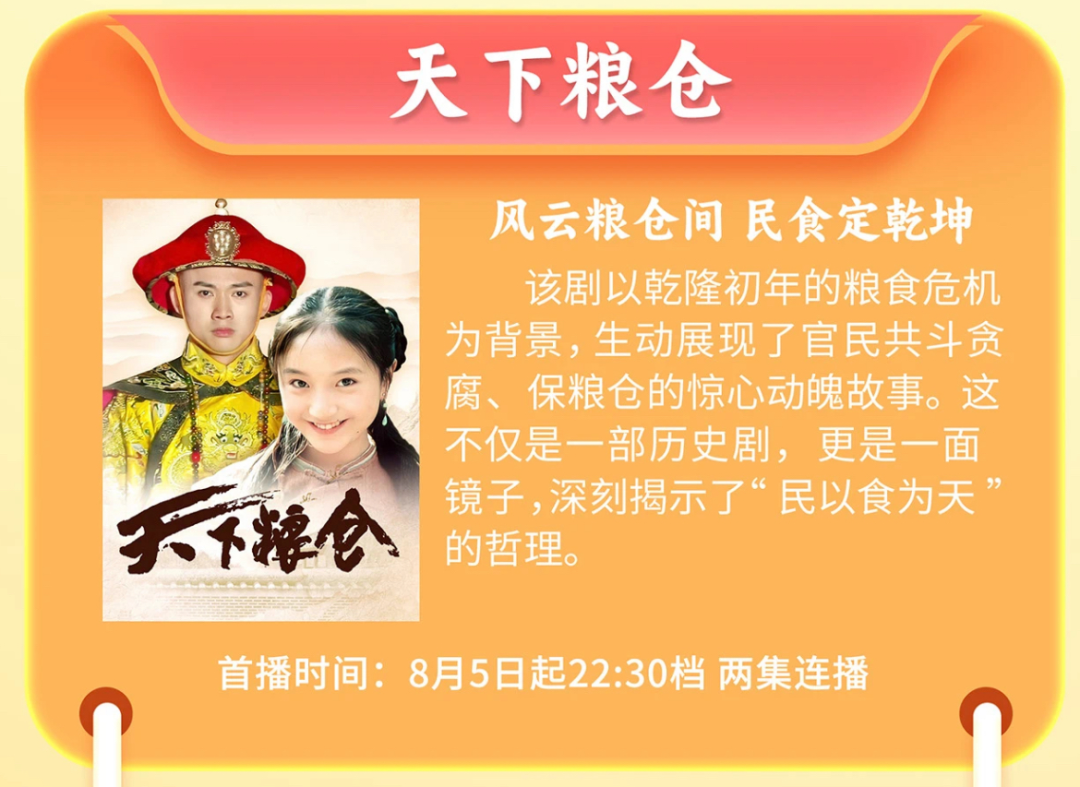
Attachment: "China Television" Issue 2, 2002 "Historical Themes·Historical Laws·Historical Character - Preface to the TV Literary Script "The Granary of the World"" (Author: Cheng Weidong)
"China TV" Issue 4, 2002 "Artistic Ingenuity and Ultimate Pursuit - Thoughts on Watching "The Granary of the World"" (Author: Li Zhun)
